Custom database development
Custom database software development | Custom database development services | Database development services | Database development company | Database building companies | Database development companies | Database software development companies | Database design companies
Custom Database Development Services and Solutions

Generic Databases Don’t Solve Specific Problems.
Off-the-shelf databases might get you started, but they quickly hit a ceiling as your business scales. When your database isn’t designed to match your specific workflows, the result often is unreliable syncing, confusing reports, and constant troubleshooting. These inefficiencies slow down operations and limit your ability to make fast, data-driven decisions.
At Codewave, we build custom databases designed around your business—not the other way around. Whether you’re handling structured data like transactions and inventory, or unstructured streams like user activity or IoT signals, our solutions are built to scale with you.
We start by mapping your workflows, data sources, and operational goals before designing the database architecture. From real-time syncing and cloud integration to secure, scalable performance, we ensure your system supports today’s needs and future scale.
Our preferred technologies—like PostgreSQL for transactional data, MongoDB for flexible models, and Firebase for real-time collaboration—are chosen based on your exact use case, not a one-size-fits-all stack.

Here’s what that looks like in real numbers:
Database Uptime
99.999% availability
Query Response Time
under 50ms
Cache Hit Ratio (Using Cache)
above 90%
Connection Utilization
(DB Connections) < 80%
Download The Master Guide For Building Delightful, Sticky Apps In 2025.
Build your app like a PRO. Nail everything from that first lightbulb moment to the first million.
What Works Today Shouldn’t Break Tomorrow.
Our custom database development services are best suited for businesses handling increasing size and complexity of Data. We design architectures that process over 1M+ queries a day without lag, lock, or loss – so your systems stay fast, consistent, and error-free at scale.
A poorly architected database can slow everything down, especially when handling complex queries or high transaction volumes. This can hurt your performance and frustrate your team.
We build custom database architectures that support your specific needs. Whether it’s a high-transaction fintech system or a real-time analytics dashboard, we make sure your database is designed for speed, scalability, and adaptability. We use PostgreSQL for relational data, Redis for caching frequently accessed data, and Amazon Aurora for auto-scaling in the cloud.
For example, imagine a logistics company that needs to track deliveries across multiple regions. With custom-designed architecture, their database processes could update in real-time, ensuring drivers, support teams, and customers all have access to the most accurate and current delivery status, without any lag or disruptions.
Your business relies on a variety of systems—sales, inventory, customer data—that all need to speak to each other. Without proper integration, your data will be fragmented, making it difficult to get a unified view of your operations.
We provide data integration services that connect all your data sources into one seamless system. Using Apache Kafka for real-time data streaming, Apache NiFi for orchestrating data flows, and dbt for transforming raw data into actionable models, we ensure that your data is always synchronized, accurate, and up-to-date across all systems.
For example, a retail chain might need to sync inventory data from stores, sales data from the website, and customer data from a CRM system. We integrate these systems so that the sales team can instantly update stock levels, and marketing teams can get real-time insights into customer behavior, ensuring the business runs smoothly without data silos.
Legacy databases often hold businesses back. They’re outdated, rigid, and can’t scale with your growing needs. When your legacy system becomes a bottleneck, it’s time for a migration to a more scalable, secure, and efficient solution.
We specialize in database upgradation and migration, moving your data to modern, cloud-native databases with minimal downtime. We use AWS DMS to ensure safe migration, Liquibase for schema version control, and Flyway for incremental database changes to ensure the migration is smooth and risk-free.
For example, an insurance provider migrating from a legacy claims processing system to a cloud-native PostgreSQL solution can continue its operations without disruptions. During the migration, data flows seamlessly into the new system, improving both speed and scalability while ensuring continuity for users.
A poorly designed database leads to redundancy, poor query performance, and higher maintenance costs. If your database design doesn’t scale with your data, it will only get harder to manage as your business grows.
We design normalized, scalable database schemas that make sure your data is organized, accessible, and efficient. Using Prisma for schema management, pgAdmin for visualizing database structures, and dbt for data transformations, we ensure your database is built to perform, scale, and evolve with your business.
For example, a healthcare provider needs to track patient records, appointments, and medical histories. We design a custom database that keeps everything organized in PostgreSQL, ensuring that doctors can quickly access patient information without slowdowns, while the system can scale as the number of patient records grows over time.
Slow queries can cripple your business. When your database queries are inefficient, your business is forced to work with inaccurate or outdated data, leading to delays and missed opportunities.
We specialize in query optimization and index tuning to speed up your database performance. We use PostgreSQL EXPLAIN ANALYZE to identify slow queries, optimize query paths, and tune indexes to ensure fast data retrieval. We also use Redis for caching frequently accessed data and PgBouncer for efficient connection pooling to make sure your system stays fast under high traffic.
For example, a logistics firm that tracks millions of shipments needs its order tracking system to respond in real time. By optimizing nested joins and adding the right indexes, we ensure that their API delivers shipment data in real time, even during high-volume periods.
Legacy systems are often outdated, lack flexibility, and can’t support modern business needs. As your business scales, sticking with an old database can limit your ability to innovate and grow.
We help businesses modernize legacy databases, moving them to modular, cloud-native systems that can scale with your needs. We use AWS DMS for secure and efficient data migration, Liquibase for schema version control, and Flyway for automating incremental changes to ensure the transition is smooth, secure, and risk-free.
For example, an insurance company looking to adopt digital claims submissions needs to modernize its backend system. By breaking down the old monolithic structure into modular, cloud-native components, the company can integrate new digital features without disrupting their existing workflow.
When microservices fail to sync data consistently or securely, it’s often a sign your database interfaces are bottlenecked or outdated. We design secure API layers that enable your microservices to talk to databases efficiently, without exposing internal logic or risking data leaks.
We use PostgREST to auto-generate secure RESTful endpoints over PostgreSQL, ensuring structured and schema-bound access for all microservices. Kong Gateway helps us manage API authentication, rate limiting, and traffic policies at scale—keeping integrations both fast and controlled. GraphQL comes in where flexibility is key—allowing clients to fetch exactly what they need, reducing over-fetching and nested joins.
Example: A food delivery startup connects its order-tracking, payment, and notification services through a PostgREST API layer—enabling consistent updates across microservices every time an order status changes.
When databases silently slow down or security patches are missed, teams end up firefighting outages they could’ve prevented. We provide round-the-clock monitoring, deep performance audits, and fine-grained alerting systems to keep your databases healthy and predictable.
We use Prometheus to collect real-time metrics across CPU, memory, and query patterns—setting precise alert thresholds for anomaly detection. pgBadger helps us audit slow query logs and index usage, giving clear, actionable insights without combing through raw logs. For issue resolution and rollback readiness, we integrate Zabbix—enabling historical trend analysis and root-cause tracking for every blip.
Example: A healthcare platform avoids service disruption by acting on alerts around sudden index bloat and connection spikes—flagged in advance by real-time monitors and detailed audit logs.
Total Control Over Your Data Finally.
We architect databases for zero-interruption performance using clustering, replication, and automatic failover. PostgreSQL with Patroni ensures failover within seconds, while Galera Cluster keeps MySQL nodes synced in real time. Load balancers auto-redirect traffic to healthy nodes, maintaining uptime without manual intervention.
For instance, a fintech platform handles millions of daily transactions. If the primary node fails mid-operation, traffic shifts instantly to a replica—ensuring account balances and payments don’t skip a beat.
We enable SaaS platforms to scale securely with shared databases that isolate tenant data. Using PostgreSQL Row Level Security (RLS) and schema-based isolation, each tenant’s records stay logically separated. Tools like Hasura ensure GraphQL APIs can query only scoped tenant data, maintaining integrity.
For instance, a B2B CRM serves hundreds of clients from one DB. Each sales team sees only their leads and notes—while admins manage all accounts from a unified control panel with no risk of data leakage.
Your systems stay in sync with real-world events using Change Data Capture. We use Debezium to monitor inserts, updates, and deletes at the DB level, streaming those changes through Kafka for instant processing. This powers live dashboards, real-time APIs, and microservices that react the moment data shifts.
For instance, a retail app reflects inventory updates as soon as warehouse stock changes. When an item is sold or returned, pricing engines, order history, and recommendations adjust instantly—delivering accurate, live data at every touchpoint.
We build for scale with distributed databases that handle global workloads seamlessly. Using Cassandra and CockroachDB, we distribute writes across nodes to avoid bottlenecks. Data is replicated across regions, and strong consistency is enforced without compromising speed.
For instance, a ride-sharing platform stores trip data across cities. Users in different time zones experience fast booking and fare updates—even during peak traffic—because the system routes queries to the nearest responsive node.
Your teams get unified access to structured and unstructured data through lake-based architecture. We use tools like Apache Hudi and AWS Lake Formation to ingest logs, media, and relational datasets into a central, queryable layer. This simplifies analytics, machine learning, and reporting workflows at scale.
For instance, an edtech platform pulls student interactions, quiz results, and video watch data into a single lake. Analysts build models to predict drop-off rates, while dashboards surface content performance across formats—all from one source of truth.
We design flexible storage stacks blending SQL and NoSQL, or cloud with on-prem systems. PostgreSQL handles relational consistency while MongoDB scales document workloads. Hybrid environments use AWS S3 and local servers, optimizing both latency and cost for dynamic workloads.
For instance, a logistics company stores shipment metadata in MySQL and GPS logs in DynamoDB. Historical data lives on S3, while frequently accessed routes stay cached locally—speeding up route planning without inflating cloud bills.
Build a smarter data backbone
Flexible Databases for Fast-Moving Teams.
Your workflows shouldn’t have to adjust around technology limitations.
Before writing a single line of code, we take a deep dive into how your business actually runs. We analyze your workflows, data sources, triggers, dependencies, and outputs—just like a system architect mapping a circuit. Then, we translate that into a clear visual blueprint that mirrors your real-world operations. This approach ensures your database is designed to match your business—not force your business to fit the database.
Once we have a clear understanding of your workflows, we design the backend structure. We use ER/Studio to map out relationships, define data cardinality, and normalize tables to ensure performance and clarity. Every column in the schema has a clear purpose, and we set up constraints and foreign keys to prevent data errors and future problems. This structured approach guarantees that the database is organized for both speed and reliability.
With the schema defined and your data access patterns clear, we pick the right database engine for the job. For high-write systems that need to scale out, we go with Cassandra. If data consistency and relational integrity are more critical, we stick with a strong relational database management system (RDBMS), like PostgreSQL. This ensures that your database is built on the best technology for your needs.
Before your system goes live, we make sure it runs smoothly under real-world conditions. We use EXPLAIN plans to analyze query performance, identifying slow scans, inefficient joins, or missing indexes. This way, we can fix potential issues during development, ensuring that the app performs reliably—even under heavy traffic.
Once the schema and queries are solid, we integrate Debezium to capture real-time changes in the database. This keeps your systems synchronized automatically, feeding updates to notifications, audit logs, and dashboards—without the need for constant polling. The moment data changes at the source, everything gets updated across your systems, so your team always has the most current information.
Finally, we put everything to the test. Using k6, we simulate real user traffic and data operations to see how the system performs under pressure. We check for things like response time, concurrency handling, and overall stability, ensuring that your database can handle heavy loads without slowing down once it’s live.
Our Toolkit For Database Development
We rely on a curated stack to architect, version, test, deploy, and monitor every database we build. It’s how we keep your data consistent, secure, and ready to perform—always.
| Data Modeling & Design |
|
| Database Engines |
|
| Schema Versioning & Migration |
|
| Query Profiling & Optimization |
|
| Deployment & Automation |
|
| Monitoring & Alerting |
|
| Backup & Recovery |
|
| Security & Access Control |
|
| Data Integration & ETL |
|
| Testing & Validation |
|
Industry Specific Database Architecture & Solutions.
We’ve worked with 15+ industries – each one with its own data chaos. From hospital systems to agri-tech platforms, we build databases that fit, function, and adapt.
| Healthcare | Back-end databases store electronic health records, lab results, medication logs, and diagnostic codes. Structured schemas ensure fast retrieval and compliance with HL7 and HIPAA standards. Example: A hospital system queries patient allergies and lab history instantly during emergency care using a normalized medical records database. |
| Transportation | Databases log GPS coordinates, trip durations, fuel usage, and maintenance reports. Real-time updates sync with route optimization engines and dispatch systems. Example: A logistics platform stores and retrieves live fleet data to reroute trucks instantly based on traffic congestion or weather alerts. |
| Energy | Time-series databases store SCADA logs, voltage fluctuations, and asset failure patterns. Structured storage enables predictive maintenance and fast outage diagnostics. Example: A utility company analyzes substation failure events and auto-triggers field crew assignments using historical breakdown data. |
| Retail | Databases manage SKU-level inventory, customer behavior logs, pricing tiers, and POS sync data. Schemas support real-time stock visibility and order tracking. Example: An eCommerce platform updates stock counts live as orders are placed and syncs price changes instantly across all online channels. |
| Insurance | Policyholder data, claims history, premium schedules, and fraud indicators are stored in relational models. Query optimization improves claims processing speed. Example: An insurance dashboard fetches related claims and red-flag patterns instantly for underwriters reviewing new policy applications. |
| Agriculture | Databases structure crop reports, satellite imagery logs, weather feeds, and sensor data from smart farming devices. Enables precision farming analytics. Example: A farm management system pulls real-time soil moisture data and cross-references with past yield reports to schedule irrigation. |
| Education | Back-end schemas store academic records, assessment logs, attendance history, and course structures. Enables fast data retrieval for admin dashboards and reports. Example: A learning platform pulls student performance data instantly to generate progress reports and suggest remedial modules based on trends. |
What to expect
What to expect working with us.
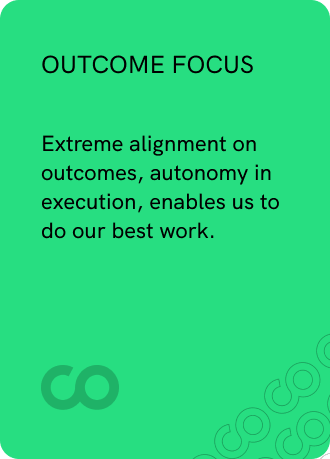
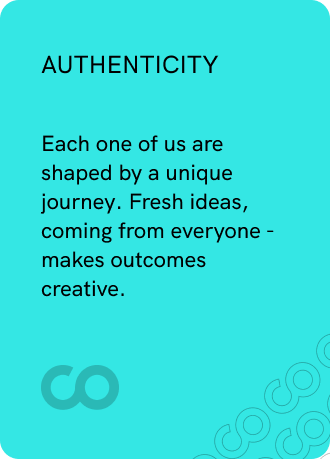
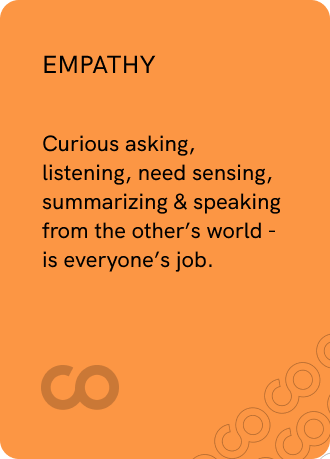
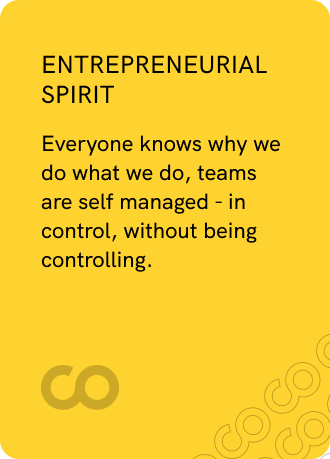
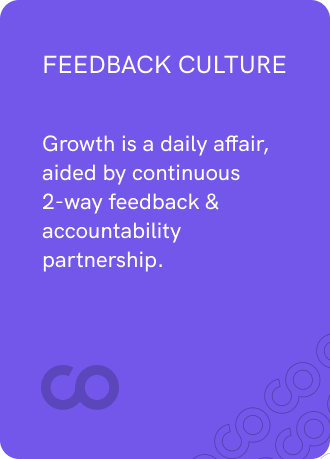
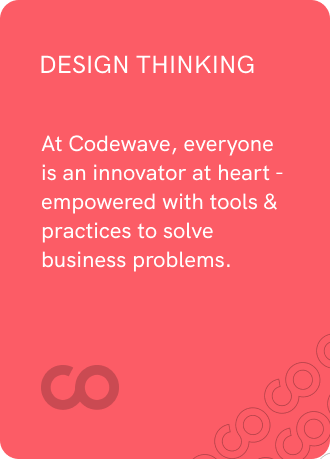
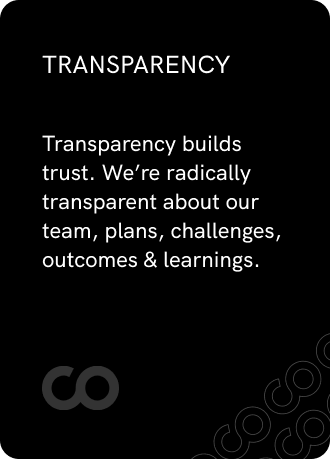
We transform companies!
Codewave is an award-winning company that transforms businesses by generating ideas, building products, and accelerating growth.
Frequently asked questions
Custom database development builds systems tailored to your data structure, business logic, and growth plans. Unlike generic tools, it aligns with your operations, ensuring better control, performance, and scalability across all digital workflows.
Businesses use database development services to structure, access, and manage critical data in real-time. These services support automation, secure information flow, and reduce downtime—directly impacting decision-making, customer service, and product delivery.
Custom database software development focuses on your workflows. You get specific data models, role-based access, faster queries, and tight integration with other systems—unlike rigid, one-size-fits-all platforms that often require expensive rework.
Healthcare, logistics, fintech, retail, and manufacturing rely heavily on structured, accessible data. Partnering with expert database design companies ensures performance-optimized schemas, better query efficiency, and easier compliance with industry-specific regulations.
Choose database development companies that ask business-first questions, understand complex data flows, and show proven success across industries. A good partner builds resilient systems that evolve with your product and handle real-world data volumes.
Codewave begins with your business rules, not just the schema. We design clean, modular, and scalable databases—choosing the right model and structure to ensure your data supports both current use and future scale.
Codewave’s custom database development services span healthcare, transportation, education, and retail. We build industry-specific models—like storing patient history, vehicle telemetry, or course modules—ensuring every field and relation adds value.
Unlike most database software development companies, Codewave writes every schema and query with intention. We don’t reuse templates. Every database build solves a real operational need and maps precisely to your product logic.
We use PostgreSQL, MongoDB, Hasura, Redis, and more—picking tools that match your use case. As one of the most forward-thinking database building companies, Codewave builds for agility, speed, and maintenance ease.
Yes. Whether it’s SQL for structured business data or NoSQL for dynamic content and telemetry, our team builds what fits your data best. We prioritize structure, speed, and real-time access in every decision.
Codewave builds in security from day one. Our database development services include encryption, access control, audit logs, and compliance readiness—especially for industries like healthcare, fintech, and insurance where privacy and integrity are mandatory.
As one of the top database design companies, Codewave brings together business logic, design thinking, and technical precision. We don’t just build databases—we craft data systems that power growth and solve real challenges.































































